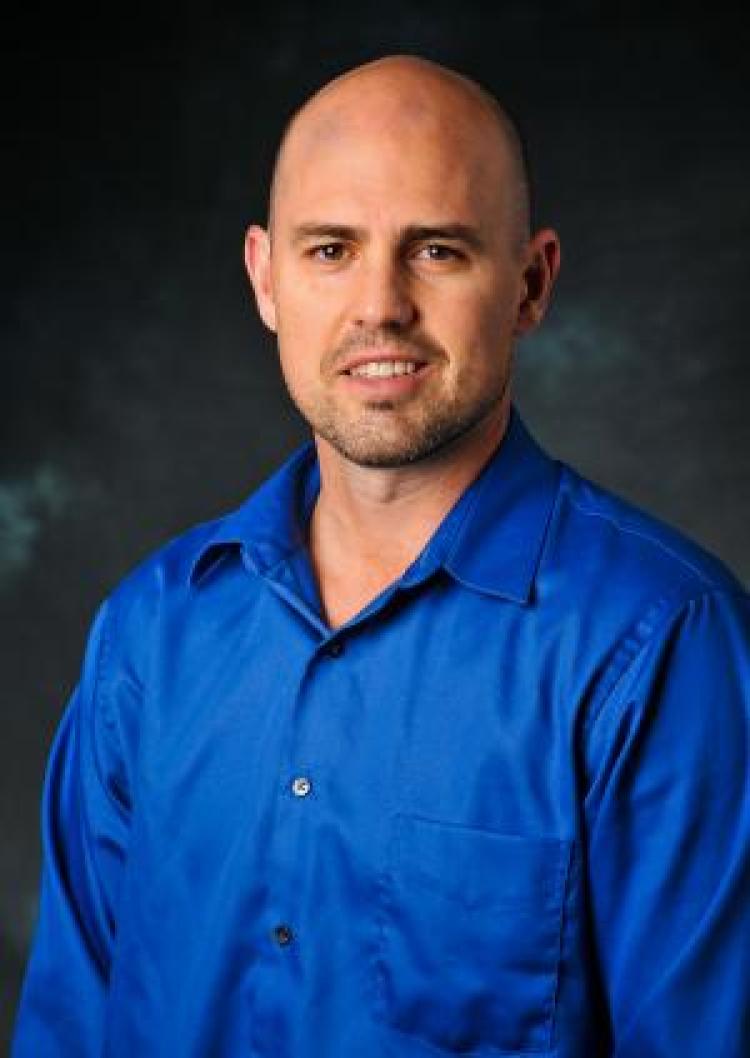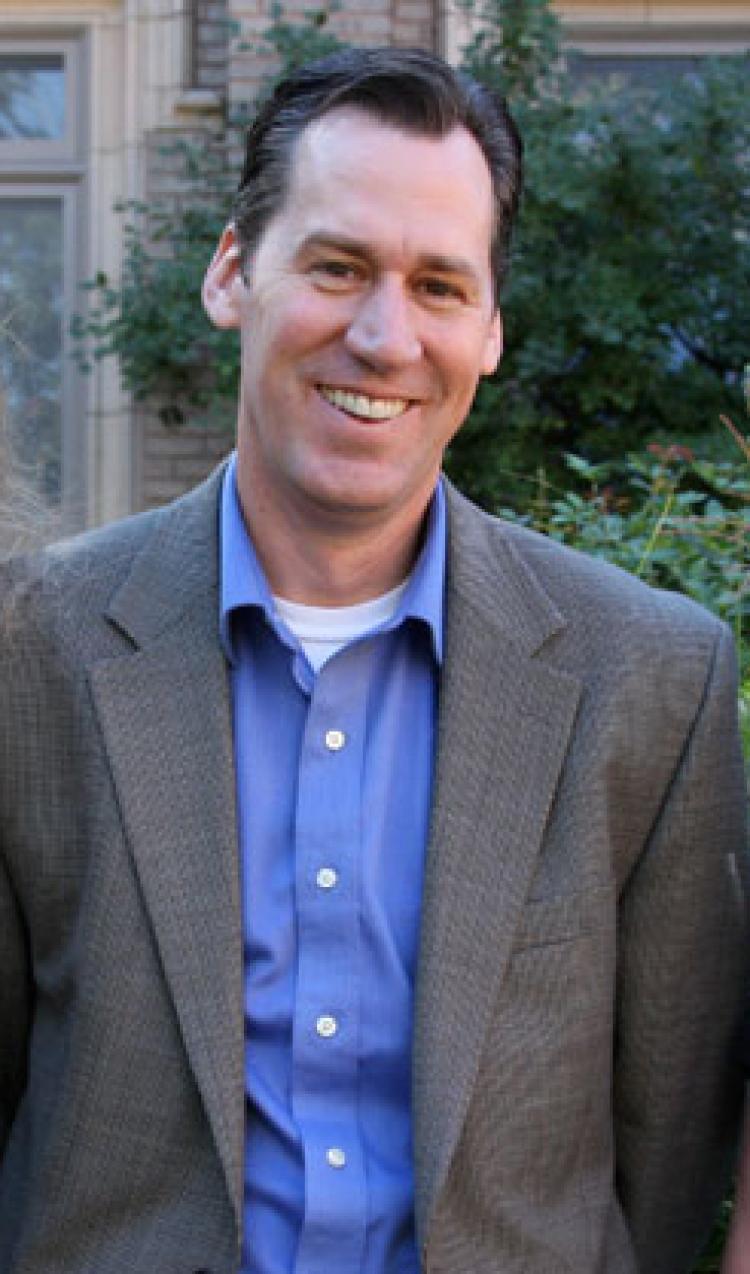Data humanities class wins NSF grant
Support aims to stymie ‘weapons of math destruction’ by improving course that introduces students to data science in a way that incorporates humanities’ strengths
A new humanities course on how to make sense of data and apply it to real-world problems has just been awarded $300,000 from the National Science Foundation (NSF), the organization announced in late August.
The grant, which was awarded to Eric Vance, associate professor of applied math, and David Glimp, associate professor of English, will be used to develop and study the efficacy of their new course, Inclusive Interdisciplinary Data Science for All, AHUM 1825.

Eric Vance, above, is an associate professor of applied math and one of the instructors of the course.
Vance said the course, which has 60 students this fall, is both timely and vital.
“Data is one of the central defining features of our era,” Vance said. “Access to large amounts of data, vast computing capacity, and ever-more-sophisticated techniques for data analysis are transforming our economy, our academic disciplines, our social interactions and the nature of our political life.”
He said those developments also create new risks for the misuse and abuse of data.
“A growing chorus of scholars and policy makers are sounding the alarm about the dangers of algorithmic injustice and coded bias impacting policing, judicial sentencing guidelines, hiring practices, job evaluation processes, access to credit, or access to educational opportunities, to name only some of the most prominent areas impacted by what Cathy O’Neil (author and data scientist) aptly named ‘weapons of math destruction’,” Vance and Glimp wrote in the NSF proposal.
Vance added that AHUM 1825 strives to introduce students to data science in a way that incorporates humanities’ competencies, and raises awareness, identifies, and ultimately helps prevent the kinds of risks described above.
“We believe our approach can not only make better data scientists, but also can help make our students more informed citizens, equipped with tools to think about the benefits and risks of data science technologies,” Vance said.
Abraham Elahmadi, a freshman majoring in theatre, said the class takes to heart something many others avoid.
“It takes into account that data science needs other disciplines to guide our questions and shape the way we present our findings,” Elahmadi said. “It's an involved project-based class that teaches teamwork, personal responsibility and thinking critically about the world we live in.”

David Glimp, above, is an associate professor of English and one of the instructors of the course.
NSF officials also praised the course and wrote that they unanimously “supported the … idea of bringing humanistic inquiry to data science and providing access to data literacy to humanities students.” Adding:
“The panel greatly appreciated (the) thoughtful approach to the articulation of the project’s potential broader impacts … focused on increasing the overall number and diversity of students who will be interested in, and qualified to do, data science. Overall, the panel was impressed by many aspects of the proposal.”
The class is sponsored by the Arts and Sciences Support of Education Through Technology (ASSETT) office, a CU Boulder program that partners with faculty and students to improve the undergraduate learning experience. A working group of faculty members (Nathan Pieplow, program for writing and rhetoric; Brett Melbourne, ecology and evolutionary biology; Vilja Hulden, history; Jane Garrity, English; Sebastian Kopf, geosciences; and Blair Young, ASSETT) began creating the class in 2019.
Early on, Vance said the group found that while many departments taught data science, there were few opportunities for students from the arts and humanities to be exposed to data science education.
“As we began designing the class, we realized that we’d found a way not only to introduce non-STEM students to programming and statistical analysis, but also to introduce STEM students to humanistic ways of thinking,” Vance said. “Specifically, we became energized by the idea that we could teach data science better to future data scientists by integrating humanities ways of thinking about data.”
Vance and Glimp hope the class eventually creates new inroads into the study of both data science and the humanities.
“Twenty-first century learners from all backgrounds will need to know more about how data science is transforming our world. … At the same time, the challenges deriving from advances in data science create an urgent need to equip students with the kinds of understanding and skills associated with the humanities,” Glimp said, adding:
“AHUM 1825 is the first step towards what we hope will be many more opportunities to teach classes that combine the humanities and data science.”

